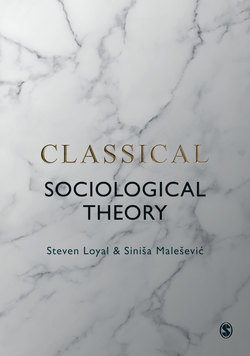Читать книгу Classical Sociological Theory - Sinisa Malesevic - Страница 40
На сайте Литреса книга снята с продажи.
Ibn Khaldun as the First Proto-sociologist
ОглавлениеMuch premodern social and political thought obsessed over normative questions such as: What constitutes a good life? How can group morals be maintained? Or how can a social harmony be achieved? The tendency was also to provide moralistic, usually religiously inspired, answers to such questions. In sharp contrast to these perspectives, Ibn Khaldun focuses on the causal relations between different social processes. Instead of advocating a particular course of action, Ibn Khaldun is one of the first social thinkers who aims to explain how the social world works. Although his studies contain extensive passages that resemble religious sermons or glorify mysticism and anti-rationalism, his main contributions are uniquely couched in the language of what we would today call social science. Drawing on wide historical, geographical and philosophical knowledge, Ibn Khaldun articulated the first proto-sociological theories of state formation, power, solidarity and urban and rural dynamics. Moreover, The Muqaddimah is often described as the first sustained work of historical science (Lacoste, 1984: 160; Schmidt, 1967).
At the heart of Ibn Khaldun’s project is the ambition to explain long-term social change. In this context, he explores the macro historical processes that impact state development, violent conflicts, urban life, civilisations, religious beliefs, social stratification and power configurations. At the same time he also tackles the micro interactional social world as he assesses the patterns of group solidarity, the role family and kinship play in nomadic and sedentary groups, personality transformations, and the dynamics of sociability.
